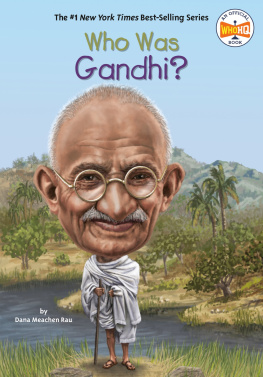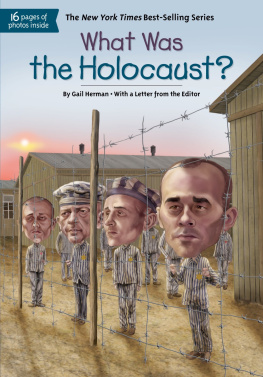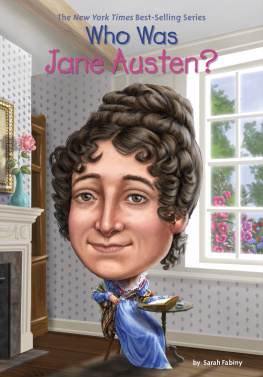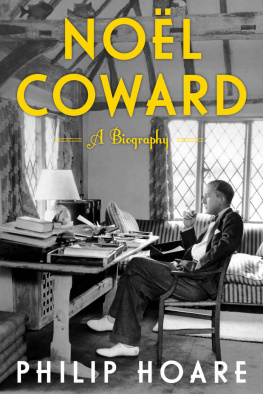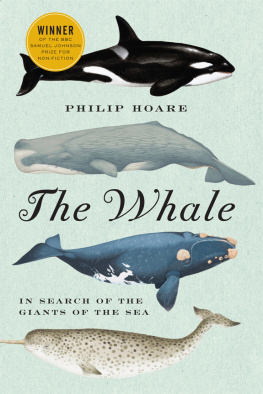Wilder Perkins - Hoare and the Ffrog Prince
Here you can read online Wilder Perkins - Hoare and the Ffrog Prince full text of the book (entire story) in english for free. Download pdf and epub, get meaning, cover and reviews about this ebook. genre: Detective and thriller. Description of the work, (preface) as well as reviews are available. Best literature library LitArk.com created for fans of good reading and offers a wide selection of genres:
Romance novel
Science fiction
Adventure
Detective
Science
History
Home and family
Prose
Art
Politics
Computer
Non-fiction
Religion
Business
Children
Humor
Choose a favorite category and find really read worthwhile books. Enjoy immersion in the world of imagination, feel the emotions of the characters or learn something new for yourself, make an fascinating discovery.

- Book:Hoare and the Ffrog Prince
- Author:
- Genre:
- Rating:3 / 5
- Favourites:Add to favourites
- Your mark:
- 60
- 1
- 2
- 3
- 4
- 5
Hoare and the Ffrog Prince: summary, description and annotation
We offer to read an annotation, description, summary or preface (depends on what the author of the book "Hoare and the Ffrog Prince" wrote himself). If you haven't found the necessary information about the book — write in the comments, we will try to find it.
Hoare and the Ffrog Prince — read online for free the complete book (whole text) full work
Below is the text of the book, divided by pages. System saving the place of the last page read, allows you to conveniently read the book "Hoare and the Ffrog Prince" online for free, without having to search again every time where you left off. Put a bookmark, and you can go to the page where you finished reading at any time.
Font size:
Interval:
Bookmark:
Wilder Perkins
Hoare and the Ffrog Prince
"Someone has been here before us, I see."
The challenged party did his best to sound casual, but his voice quavered and his belly rumbled audibly as he and his second looked down at the figure sprawled in the moonlit snow. The body's caped boat-cloak spread wide to display a peculiar naval uniform. Its hat, a gold-braided tricorne, lay beside one outflung hand.
A stout, florid merchant of Portsmouth town, the challenged party had never been out before. Now, at sight of the sword blade protruding from the dead man's massive chest and the pool of frozen blood beneath its parted lips, he felt he would rather apologize, go home to bed, sleep till noon, and forget the whole thing.
With a cheerful squeak of wheels in the snow, a chaise approached up the hill from town. Three cloaked figures alighted. "What have you gotten up to now, Golightly?" asked the shortest one. His breath smoked in the frosty air.
"You must not speak to my principal, Mr. Derrick," said the merchant's second. "Besides, when we arrived, the man was lying right here, just the way he is now. What about him, Edwards?"
The third of the trio from the chaise set down his surgeon's bag, stooped over the body, shook it. Ice crackled, and the body stirred in one piece like a fallen statue. The embedded blade vibrated slightly.
"Dead, gentlemen. Quite dead."
All five standing men removed their hats. The two seated high on the chaise followed suit; one crossed himself. "Wonder who he was."
"Looks like a Frog to me," another said. "Still wears lace to his wrists."
"Look here, Derrick," the merchant said, "I don't think it would be respectful to the dead man, whoever he is, to pursue our little disagreement any further. Will you accept my apology?"
"Of course, my dear fellow. Let us blame overindulgence in the mayor's negus for that little lapse, shall we?" While patronizing, the challenger's voice was distinctly relieved.
"Here now," he went on. "It's downhill all the way home. Climb in, all of you. We'll stir 'em up at The George and drink to our old friendship in a bowl of his punch."
"But what about the body?"
"Oh, we'll leave Farley here till the watch comes for it," Mason said airily. "He's an old seadog; he won't mind a bit of cold. Besides, a shilling will see him right. You, Farley!"
The groom climbed stiffly from his perch and watched his master's chaise disappear down the slope into Portsmouth town, leaving him to keep warm as best he might in the growing dawn. "Hell," he said softly but distinctly.
Admiral Sir George Hardcastle was as burdened as ever with the endless demands on his time as port admiral. Now, however, the demands were from the host of officers put on half pay when their ships were laid up at the signing of peace with Bonaparte at Amiens. In order to reach the admiral's private office in answer to his peremptory summons, Bartholomew Hoare must needs whisper his apologies while edging past post captains by the handful and lieutenants by the score. The poor penniless mids must shiver outside.
For once, Hoare whispered to himself, the Fates had at least been perversely merciful to him. He had cursed those damned goddesses when a musket bullet from the frigate Eole had crushed his larynx at the Glorious First of June; his curses had been even more heartfelt when he had been beached forever because he could no longer speak above a horrid rasping whisper. But now, having held down the job of general dogsbody to the port admiral since '94, he had escaped the axe and could still enjoy the full pay of a lieutenant, RN. Slender the stipend might be, but his pocket was no lighter now than that of most of the half-pay captains past whom he was dodging. Moreover, he had mercifully hoarded the prize money gained at sea so long ago instead of squandering it like most of his shipmates.
"The admiral has been awaiting you this half hour, Mr. Hoare," Patterson, the admiral's clerk, said reproachfully. "Go right in as soon as he has disposed of Captain Pottle." The clerk shook his grizzled head. "Poor Pottle, he hasn't a hope of a ship." Pottle had been a client of Earl Blake, but Blake had died, drunk and in debt, and Pottle's interest at the Board of Admiralty had died with him.
The hapless Pottle emerged, looking hangdog, and Hoare slipped his lanky, silent self past him.
"You have kept your superior officer waiting, Hoare, and not for the first time. I must remind you that any of those hungry idlers out there would leap at the chance of taking your place."
The admiral's face was neither more nor less red than usual, so Hoare concluded that the remark was a mere matter of habit. He stood fast and waited.
"The Duc de Provins is dead, Hoare. You know him, of course?"
"Know of him, sir." As a Bourbon of the French blood royal, albeit an illegitimate one, Provins' place in the world was as far above Hoare's as Hoare's was above that of a sea urchin. But Hoare knew him by sight. The two nations, he remembered, always at odds if not at actual war, were wont to harbor each other's exiled monarchs and their courts, like so much dirty laundry taken in pawn. When Louis XVI had lost his useless head and the Dauphin been left to die of neglect, the new head of the family, Louis-Stanislas-Xavier, had established his yawn-filled powerless court at Hartwell Castle. Provins had soon wearied of his gross, kindly half-brother and moved to Portsmouth. Here he had taken full advantage of his nominal rank as admiral in His Most Christian Majesty's hypothetical fleet to throw his weight about in Royal Navy circles.
Hoare had seen the duc several times in the salon d'escrime of his own instructor, the Vicomte Marc-Antoine de Chatillon de Barsac. His royal highness had visibly relished poking fun at these awkward Englishmen who thrust away so earnestly at each other with De Barsac's foils and sabres. But he had not been above taking up the occasional foil himself, and he had acquitted himself well enough.
"Well," said Sir George, "a pair of cits went up to the common this morning to settle some petty matter of honor. Found His Grace there all by himself in the snow with a sword through his heart. There'll be hell to pay at the Foreign Office.
"And hell to pay at the Admiralty, for that matter. I hope you didn't know it, Hoare, but he was in our pay, too. Kept us abreast of the politics of our opposite numbers in Napoleon's navy. Don't know how he managed to keep abreast himself, but there you are. You speak French, don't you, Hoare?"
"Yes, sir." Indeed he did. Nearly twenty years ago, when he was second in Staghound, Hoare had left his beloved, gently born French-Canadian bride Antoinette ashore in Halifax, to die in childbirth without him. He had never seen his daughter; the infant's grandparents had swept her away before he returned. He had never even learned her name.
"Well, I want you to keep a weather eye out on the matter, on the navy's behalf. I don't trust the mayor's men to get to the bottom of anything but a mug of Oh-Be-Joyful. They've taken up De Barsac. Seems our royal duke was sent to his Maker by one of the swords at the viscount's school. Can't see why they don't have barons and earls like civilized people. Anyhow, see to it, Hoare."
Hoare heard these words with dismay. Before fleeing France in '93 just ahead of the guillotine, De Barsac had been an able frigate captain and an honorable enemy. Now, besides being Hoare's instructor, he was his friend. And with a sinking of the stomach, it came back to him that the taverns had been abuzz last night with the news that His Grace and the maitre had engaged in a snarling match upon the floor of the latter's own establishment.
"They sounded like a pair of tomcats, if you ask me," Hoare's informant had said. "I half expected De Barsac to draw on the duke. There would really have been the devil to pay then, and no pitch hot."
Font size:
Interval:
Bookmark:
Similar books «Hoare and the Ffrog Prince»
Look at similar books to Hoare and the Ffrog Prince. We have selected literature similar in name and meaning in the hope of providing readers with more options to find new, interesting, not yet read works.
Discussion, reviews of the book Hoare and the Ffrog Prince and just readers' own opinions. Leave your comments, write what you think about the work, its meaning or the main characters. Specify what exactly you liked and what you didn't like, and why you think so.


